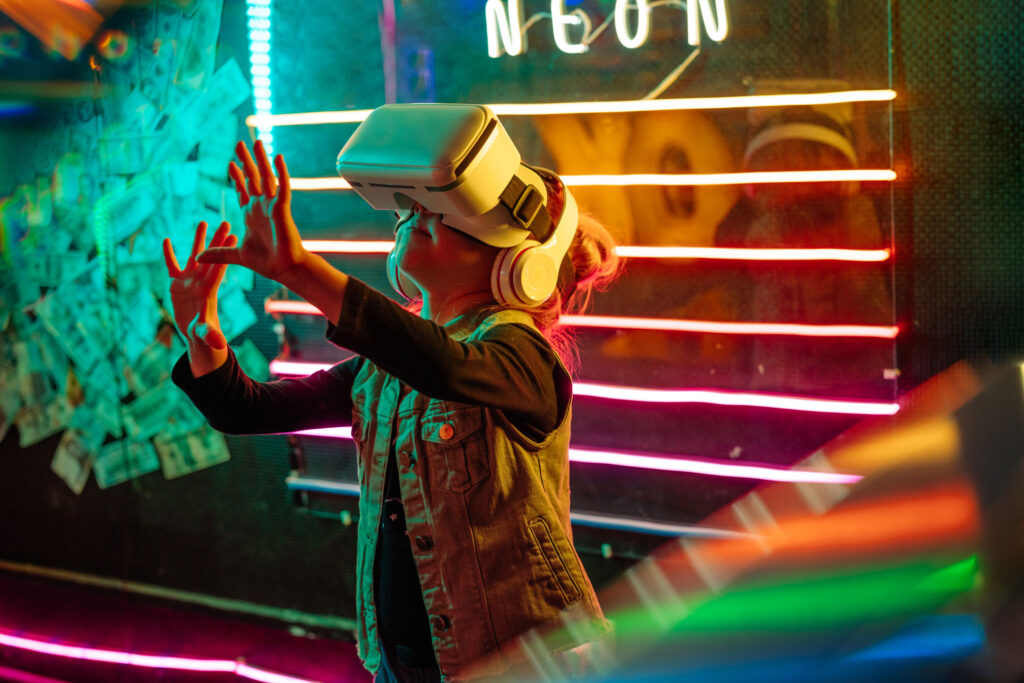2025 marks the official beginning of Generation Beta, meaning we’re less than five years away from Generation Alpha entering the workforce. The eldest members of this generation, born in 2010, will turn 20 years old in 2030.
2010 was a milestone year for technology. Apple launched the iPad, Instagram and Pinterest made their debut, and Netflix shifted from DVD rentals to online streaming. So, it’s no surprise that with technology embedded in their lives from birth, Gen A stands apart from previous generations.
Who are Generation Alpha or Gen A?
Born between 2010 and 2024, Generation Alpha is:
- “Techsperts”

They are the first generation fully immersed in technology from infancy, with smartphones, tablets, and AI-powered tools shaping their daily lives. 40% of Gen A believe AI, virtual reality, and smart assistants will be central to their future careers.
- Highly Informed
Gen A expects instant answers. Instead of “Google it,” you’ll hear them say, “Ask AI.” They’ve grown up with personalised, on-demand content and seamless digital experiences.
- Globally Conscious
They are highly aware of political, social, and environmental issues. Many have travelled internationally at a young age, and distance is not a barrier to connection.
Organisations looking to bring in entry level talent in five to ten years’ time would benefit from gaining a deeper understanding of this generation, their motivations, and potential challenges.
What is Gen A looking for from a career?
Entrepreneurial Spirit
A 2023 study by Visa found that 76% of children aged 8-14 want to be their own boss or have a side hustle. In contrast, only 13% of today’s UK workforce is self-employed. The same study found that many Gen A children are already earning money:
- 78% made money in the past year by completing chores.
- 43% used technology – mainly social media – to generate income.
This shift suggests early financial literacy and a strong interest in income generation.
Interest in Healthcare and Education
A survey of 1,000 children in the U.S aged 5-8 years showed a strong interest in professions that help others:
- 26.2% of children aged 5–8 in the U.S. want to be doctors, nurses, or healthcare professionals.
- 16.5% aspire to become teachers.
In the UK, research by TMPW found that healthcare was the most popular sector among 11–15-year-olds, with career aspirations including surgeon, doctor, and physiotherapist.
Young people are motivated by making a positive impact on society and helping others.
Influencer Aspirations

12% of Gen A want to become TikTokers, YouTubers, or vloggers, reflecting the influence of digital media. As social platforms evolve, it remains to be seen whether this trend will grow or fade.
Flexibility matters
73% of Gen A want the choice between working from home and the office. TMPW research found that 9-to-5 desk jobs are unappealing to young people.
They value variety, freedom, and flexibility.
Diversity and Inclusion
Gen A is expected to prioritise inclusivity and reject traditional stereotypes, with a strong belief that everyone should be treated equally. They’ll expect this in hiring processes and hold brands and organisations accountable.
Social and Environmental impact
66% of Gen A prefer to support brands that make a positive impact on the world. Sustainability and ethical business practices will be non-negotiable for this generation.
Wellness Awareness
Having experienced a global pandemic at a young age, Gen A places high importance on:
- Work-life balance
- Mental well-being
They may also adopt habits from Gen Z, such as prioritising a sober, balanced lifestyle over partying and overworking.
How does Gen A Research Careers?
Gen A approaches career exploration differently from previous generations.
- AI Powered Career Research
They rely on AI tools like ChatGPT, Gemini, and Claude for career advice. By the time they enter the workforce, AI will be even more advanced. Organisations must adapt their attraction strategies to ensure AI delivers accurate, engaging insights about their brand. Instead of browsing careers pages, Gen A may simply ask AI, “What’s it like to work at [Company Name]?”
- Influence of Family & Educators
Gen A’s career decisions are shaped by parents, siblings, and teachers. Organisations that engage these groups today will positively influence Gen A’s perception of their brand in the future.
The Future is Gen A
The reality is that we don’t know exactly what the world of work will look like in 15 or even five years’ time. If we’ve learnt anything from the last five years, it’s that things can change in a heartbeat and the impact of those changes can be long lasting. Starting to think about Gen A and how best to understand and engage them is important regardless, particularly if your strategy relies on bringing in early career’s talent.






